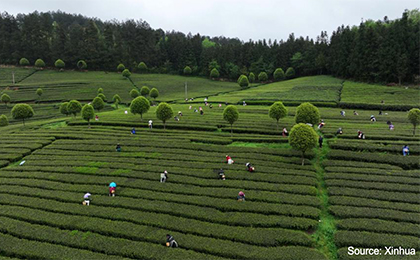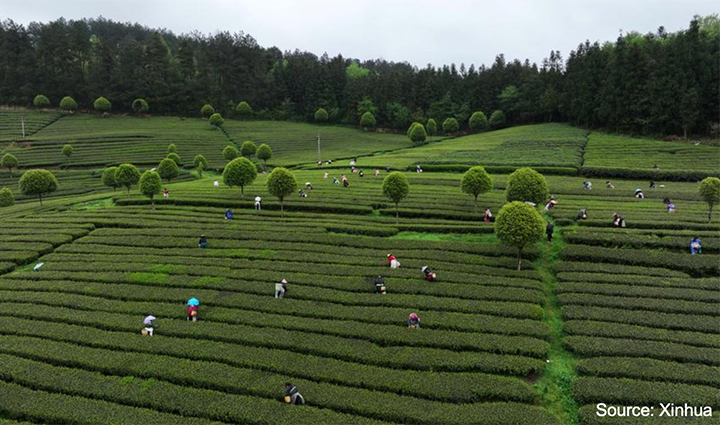



A drone photo shows farmers picking tea leaves at tea gardens in Erlong Village in Yuqing County, southwest China's Guizhou Province, April 5, 2024. (Xinhua/Yang Ying)
A Chinese research team recently visited Sri Lanka to discuss plans to establish a joint laboratory as part of the Belt and Road Initiative, according to the Guizhou University on Monday.
Sri Lanka, known for its traditional agricultural practices with tea cultivation as a key industry, aims to advance the popularization and application of green prevention and control technologies by building the laboratory in collaboration with China.
The laboratory will focus its research on three key areas, which consist of accurate pesticide reduction based on big data, biological control technology for insect pests and weed infestations in tea gardens, and risk monitoring and control technology aimed at tea pesticide residue.
Through these efforts, the laboratory aims to set up an efficient, environmentally friendly, safe and controllable system for green prevention and control in tea cultivation.
The laboratory will be jointly established by the Guizhou University, the University of Peradeniya, the Central China Normal University and Sri Lanka Tea Research Institute.
Green prevention and control refers to the practice of preventing and controlling pests, diseases, and weeds by utilizing biological, ecological, and sustainable techniques instead of chemical pesticides, aiming to protect the ecosystem and human health while promoting agricultural sustainability.
Source:<https://english.news.cn/20240410/df22d58cf1f9473da201b4a0b7608ebf/c.html>